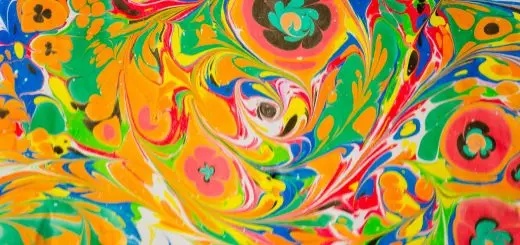Taoist Martial Arts: Discipline of the Way

Looking for more amazing products? Check out our online store and explore our collection here! Happy shopping!
Before diving in, please note: This post is for informational purposes only. If you’d like to know more about how we approach topics, feel free to check out our friendly Disclaimer Page.
Hey there, amazing readers! 
We’re committed to delivering quality posts, and your support (even just sticking around despite the ads) means everything to us. So, bear with us, and thanks for helping us keep the good vibes rolling. Now, on to the fun stuff!
TRANSLATE BUTTON AT THE END OF THE ARTICLE
A Quick Overview: Introduction to Taoist Martial Arts
Taoist martial arts, also known as Wudang martial arts, are a unique system of fighting techniques that have been influenced by Taoist philosophy.
These martial arts focus not only on physical combat but also on cultivating the practitioner’s mind, body, and spirit.
The practice of Taoist martial arts involves discipline, meditation, and the cultivation of qi (energy) to achieve a harmonious balance within oneself.
History and Philosophy of Taoism
Taoism is an ancient Chinese philosophy and spiritual tradition that emphasizes living in harmony with the Tao, or the Way.
It dates back to the 4th century BCE and is attributed to the legendary sage Laozi.
Taoism teaches the importance of simplicity, spontaneity, and the natural flow of life.
The philosophy of Taoism has greatly influenced Chinese culture, including martial arts.
The Connection Between Taoism and Martial Arts
Taoist martial arts are deeply rooted in the principles of Taoism.
Practitioners of Taoist martial arts seek to embody the Taoist ideals of balance, harmony, and the interconnectedness of all things.
These martial arts emphasize using the opponent’s energy against them, rather than relying solely on brute force.
By cultivating a deep understanding of Taoist philosophy, practitioners are able to enhance their martial arts skills.
Principles and Concepts of Taoist Martial Arts
Some key principles of Taoist martial arts include:
Softness overcomes hardness
Yielding to overcome resistance
Embracing emptiness to find fullness
Cultivating internal strength as opposed to relying solely on external force
These principles guide practitioners in their martial arts training and help them develop a deeper understanding of themselves and their opponents.
Training Methods in Taoist Martial Arts
Training in Taoist martial arts typically includes a combination of physical conditioning, forms practice, sparring, and meditation.
Practitioners focus on developing proper body mechanics, balance, and coordination.
Meditation is used to calm the mind, increase focus, and cultivate qi.
The holistic approach to training in Taoist martial arts helps practitioners develop not only physical strength but also mental clarity and emotional balance.
Weapons and Forms in Taoist Martial Arts
Taoist martial arts incorporate a variety of traditional Chinese weapons, such as the sword, staff, and spear.
Weapons training helps practitioners improve their coordination, timing, and agility.
Forms, or sequences of movements, are also an essential part of training in Taoist martial arts.
Forms practice allows practitioners to refine their techniques, improve their fluidity of movement, and develop their martial arts skills.
Benefits of Practicing Taoist Martial Arts
Some benefits of practicing Taoist martial arts include:
Improved physical fitness
Increased mental focus and clarity
Stress reduction and relaxation
Enhanced self-discipline and self-control
Cultivation of inner strength and resilience
Practicing Taoist martial arts offers a holistic approach to physical, mental, and spiritual well-being.
Qi (Energy) Cultivation in Taoist Martial Arts
Qi, or energy, is a fundamental concept in Taoist martial arts.
Practitioners believe that by cultivating and harnessing their qi, they can enhance their martial arts abilities and achieve a higher level of consciousness.
Breathing exercises, meditation, and specific movements are used to circulate and strengthen qi within the body.
By developing their qi, practitioners can improve their health, vitality, and martial arts skills.
Famous Taoist Martial Arts Masters
Throughout history, there have been many legendary Taoist martial arts masters who have achieved great skill and mastery in their practice.
Some famous Taoist martial arts masters include:
Zhang Sanfeng, the legendary founder of Tai Chi Chuan
Wang Zongyue, a renowned Tai Chi Chuan master
Li Jinglin, a master of Baguazhang
Zhang Men, a famous Xingyiquan practitioner
These masters have left a lasting legacy in the world of martial arts and continue to inspire practitioners today.
Modern Applications of Taoist Martial Arts
In the modern world, Taoist martial arts are practiced not only for self-defense but also for health and wellness.
Many people turn to Taoist martial arts as a form of exercise, stress relief, and personal growth.
The principles and techniques of Taoist martial arts can be applied to everyday life, helping practitioners cultivate mindfulness, resilience, and a sense of inner peace.
Challenges and Misconceptions in Taoist Martial Arts
Despite the many benefits of practicing Taoist martial arts, there are also challenges and misconceptions associated with these arts.
Some common misconceptions include the belief that Taoist martial arts are only for combat or that they require supernatural abilities to master.
Challenges may arise from the rigorous training and discipline required to excel in Taoist martial arts.
However, with dedication, perseverance, and guidance from a skilled teacher, practitioners can overcome these challenges and deepen their understanding of the discipline.
Conclusion: Embracing the Discipline of the Way
Taoist martial arts offer a unique approach to physical, mental, and spiritual development.
By embracing the principles of Taoism and applying them to their martial arts practice, practitioners can cultivate a deep sense of harmony, balance, and self-awareness.
Through dedicated training, meditation, and qi cultivation, individuals can enhance their martial arts skills and achieve a higher level of consciousness.
Practicing Taoist martial arts is not just about learning to fight; it is about embarking on a journey of self-discovery and personal growth.
By embracing the discipline of the Way, practitioners can unlock their full potential and live a life in harmony with the Tao.

The Enlightenment Journey is a remarkable collection of writings authored by a distinguished group of experts in the fields of spirituality, new age, and esoteric knowledge.
This anthology features a diverse assembly of well-experienced authors who bring their profound insights and credible perspectives to the forefront.
Each contributor possesses a wealth of knowledge and wisdom, making them authorities in their respective domains.
Together, they offer readers a transformative journey into the realms of spiritual growth, self-discovery, and esoteric enlightenment.
The Enlightenment Journey is a testament to the collective expertise of these luminaries, providing readers with a rich tapestry of ideas and information to illuminate their spiritual path.
Our Diverse Expertise
While our primary focus is on spirituality and esotericism, we are equally passionate about exploring a wide range of other topics and niches 

To ensure we provide the most accurate and valuable insights, we collaborate with trusted experts in their respective domains 
Our blog originally focused on spirituality and metaphysics, but we’ve since expanded to cover a wide range of niches. Don’t worry—we continue to publish a lot of articles on spirituality! Frequently visit our blog to explore our diverse content and stay tuned for more insightful reads.
Hey there, amazing reader! 
Check out our store here and take a peek at some of our featured products below! Thanks for being awesome!













